The Rambo movies have evolved a lot over the years, going from a quiet, contemplative study of the effects of PTSD, to a series of increasingly bloody orgies of violence, ratcheting up the body count with each installment. But for all that the movies have changed, the character has remained relatively the same, time-locked in a repeating cycle of trauma.
Over the years, Rambo films have shown how the character’s past actions never truly stop haunting him, and this is evidenced by a series of quotes from the various characters. Some are philosophical, while others reinforce the rage Rambo feels from living in a world that left him and many others of his generation behind.
Updated on April 14th, 2022 by Derek Draven: The recent release of Rambo: Last Blood seems to have put the finish on the long-running action franchise, though there’s still talk of future installments. In the meantime, fans can look back on the existing crop of films with Sylvester Stallone in the lead as Vietnam vet John Rambo. It’s worth taking a look at a few more quotes from the Rambo franchise which sum up not just the character, but the state of wars and conflicts as they have evolved from the 1960s, all the way up to today.
The opening act of First Blood begins with Sherriff Teasle harassing Rambo after he inadvertently strolled through his town. A passive Rambo tries to keep a low profile without bothering anyone, but Teasle clearly has other ideas on his mind, such as forcing him to move along.
Having broken no laws, Rambo asks Teasle this question, which provokes a negative response from the latter. It’s the first real escalation between the two, but it isn’t long before the conflict spirals out of control, and turns a nice little town into a war zone.
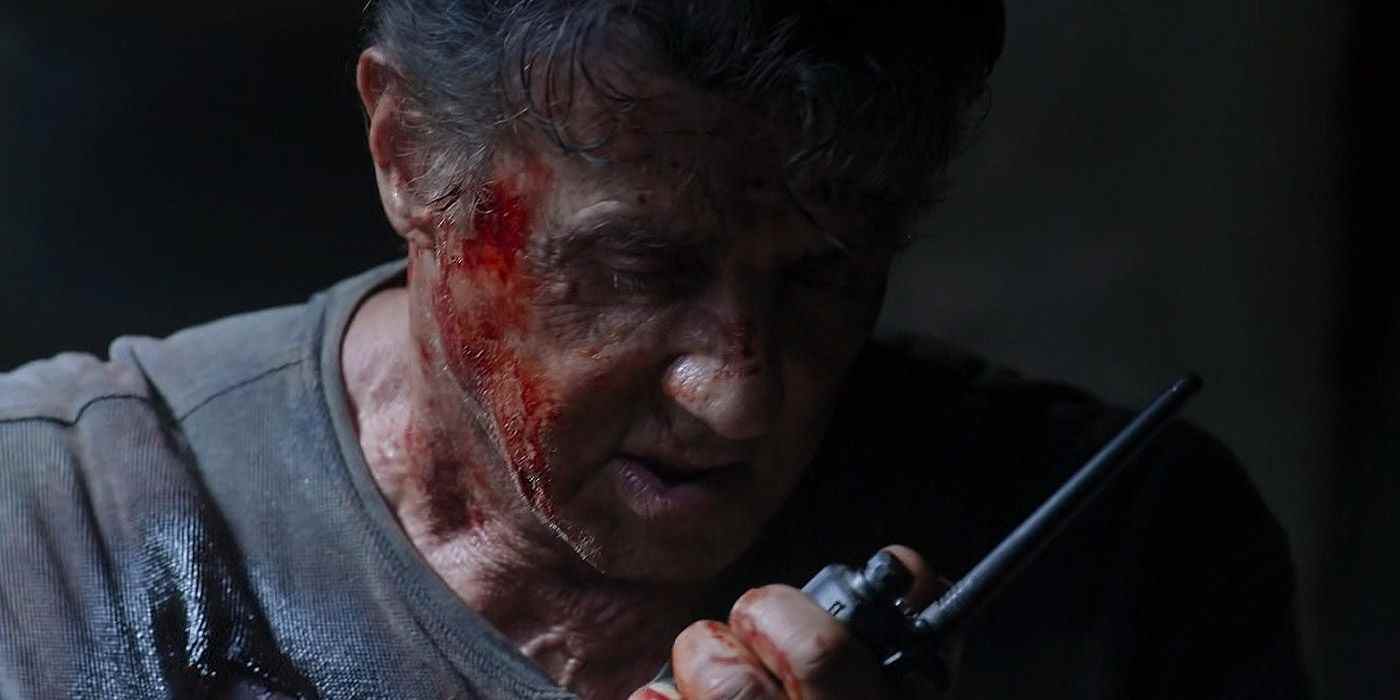
Like any action hero, John Rambo has uttered a handful of threatening one-liners to his enemies in the past, usually before killing them. In some instances, Rambo uttered these threats seconds before killing his target, while other times he waited until the majority of the movie had passed before making good on his promise.
Last Blood provided another great example of those quippy proclamations. It’s simple and concise, gets right to the point, and foreshadows future scenes showing Rambo wielding some of the most iconic weapons of the entire franchise, usually in a grisly manner.
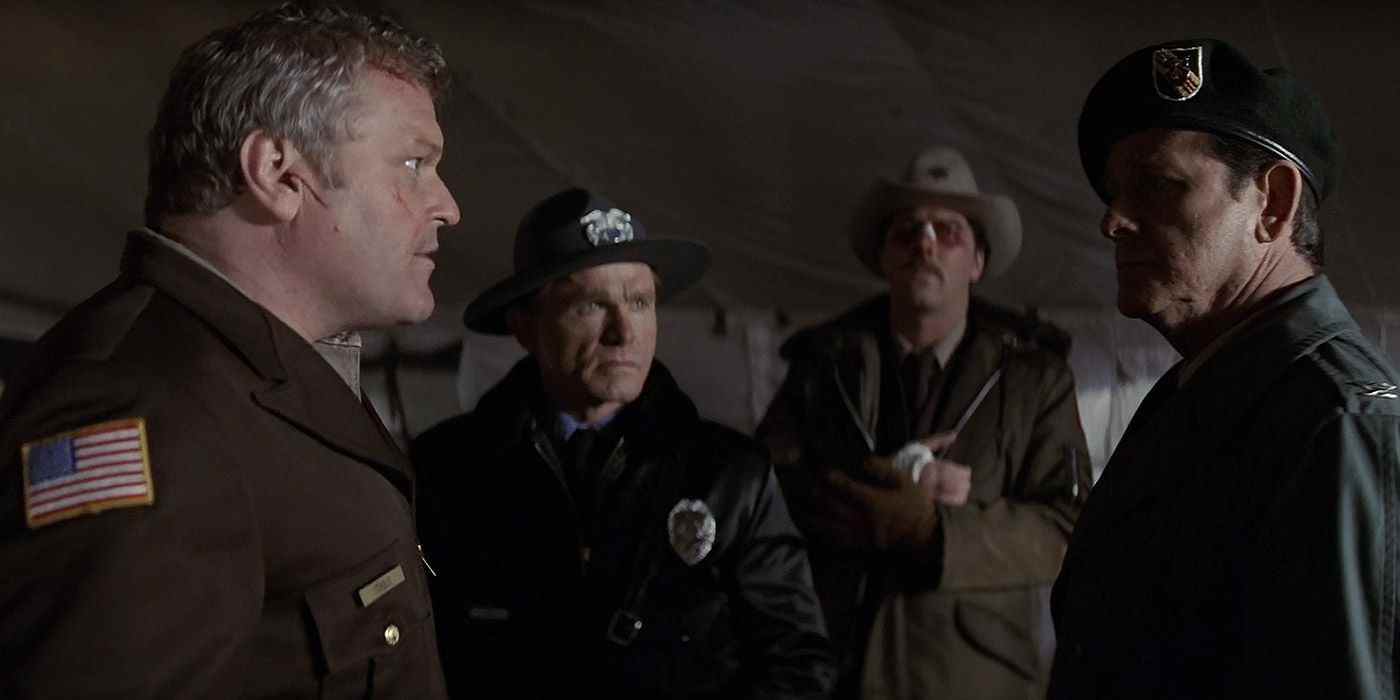
John Rambo is a very specific type of man. He didn’t have much of a direction in life before enlisting in the Vietnam War, where he became a lethal killing machine. Teasle rhetorically asked this question when the hunt for Rambo became one gigantic small town mess, prompting Colonel Trautman to interject with “God didn’t make Rambo. I made him.”
It was the first example of the government’s role in creating Rambo and teaching him how to survive in the worst of conditions, only for those skills to be used against America’s own forces. Trautman didn’t hide the ball, but rather, he was very open about his role in Rambo’s training.
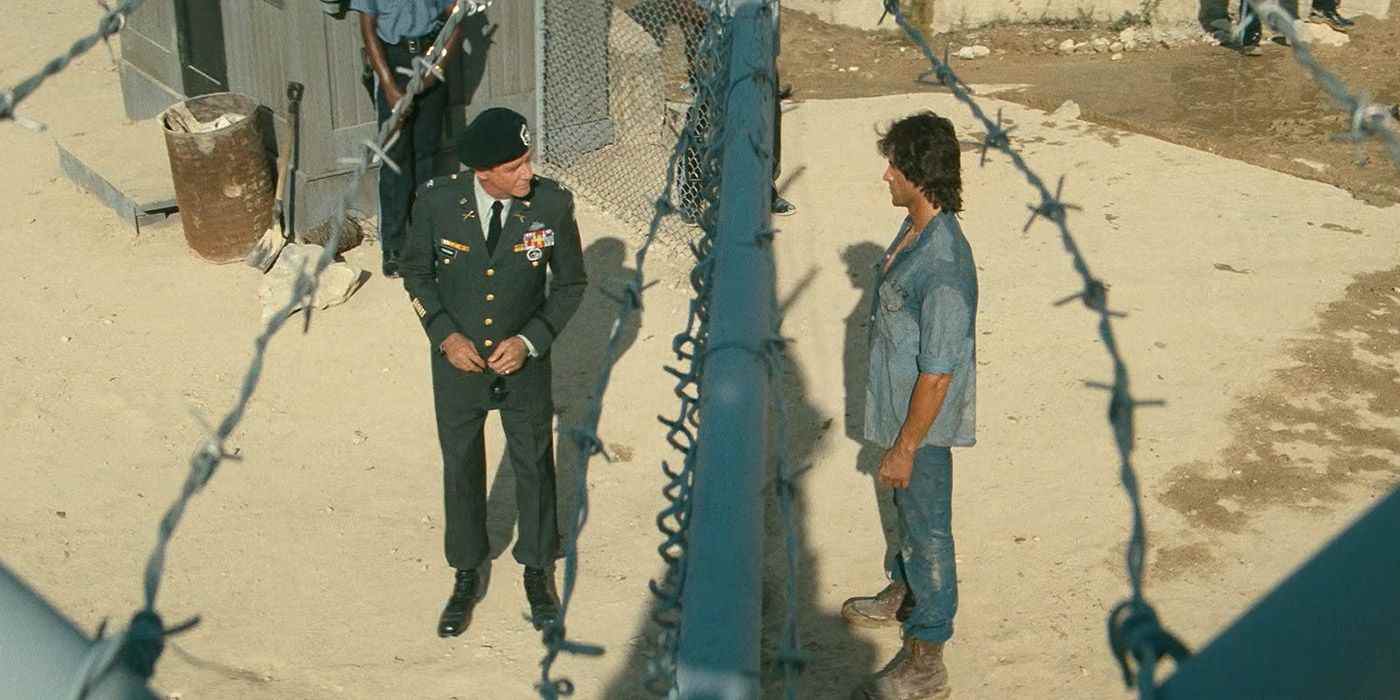
At the beginning of Rambo: First Blood Part II, when Col. Trautman approaches Rambo with a mission to head back to Vietnam and free some prisoners of war, Rambo is understandably skeptical. Having been denied a victory in Vietnam before, he asked this poignant question to Trautman.
This was a reference to the fact that America never actually lost the Vietnam War, but rather, was denied a victory by the current government at that time. Essentially, American soldiers were forced to withdraw from a grueling campaign, only to lose all over again when they returned home to hatred from their fellow Americans.
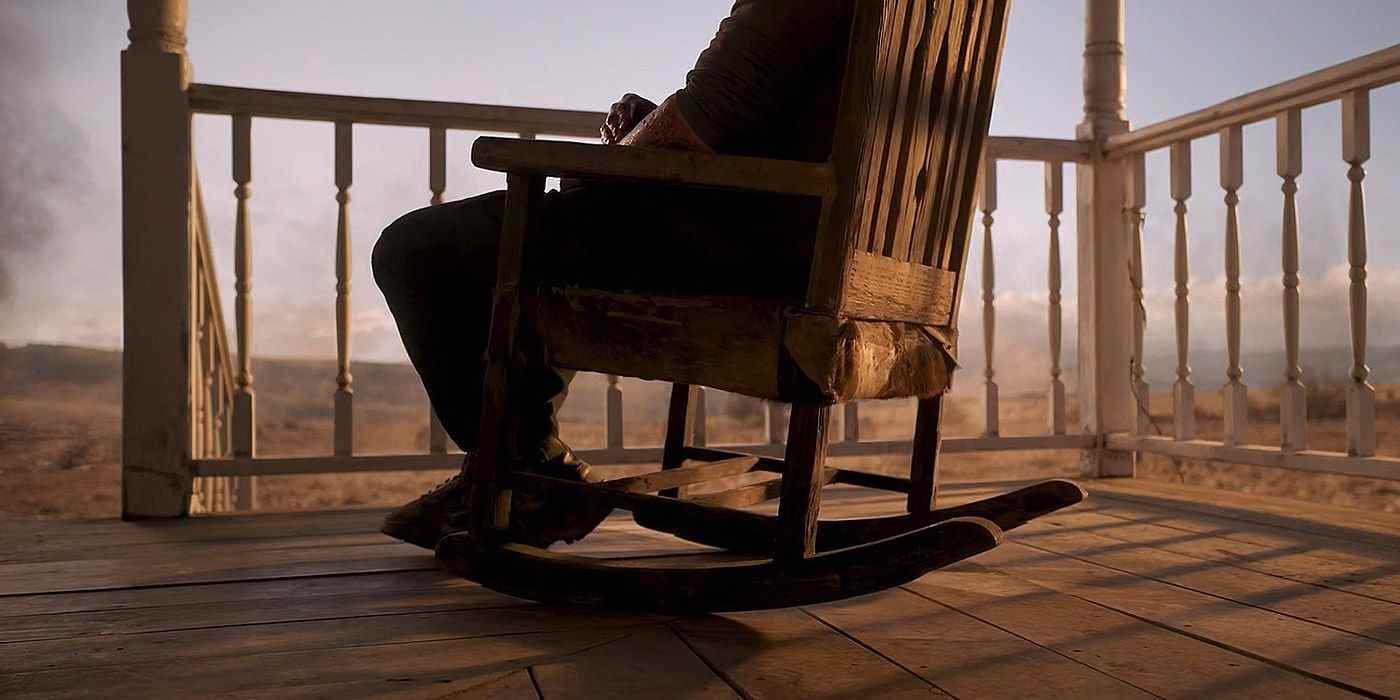
Rambo has always been known for his verbose monologues, and the final moments of Last Blood brought perhaps the character’s most poignant one yet. It was a major eye-opener for fans who wondered how a man so traumatized could ever find peace on his own home soil. This quote proved he never achieved that goal.
He says, “I’ve lived in a world of death. I tried to come home, but I never really arrived. A part of my mind and soul got lost along the way, but my heart was still here where I was born, where I would defend to the end the only family I’ve ever known, the only home I’ve ever known. All the ones I’ve loved are now ghosts. But I will fight to keep their memory alive forever.”
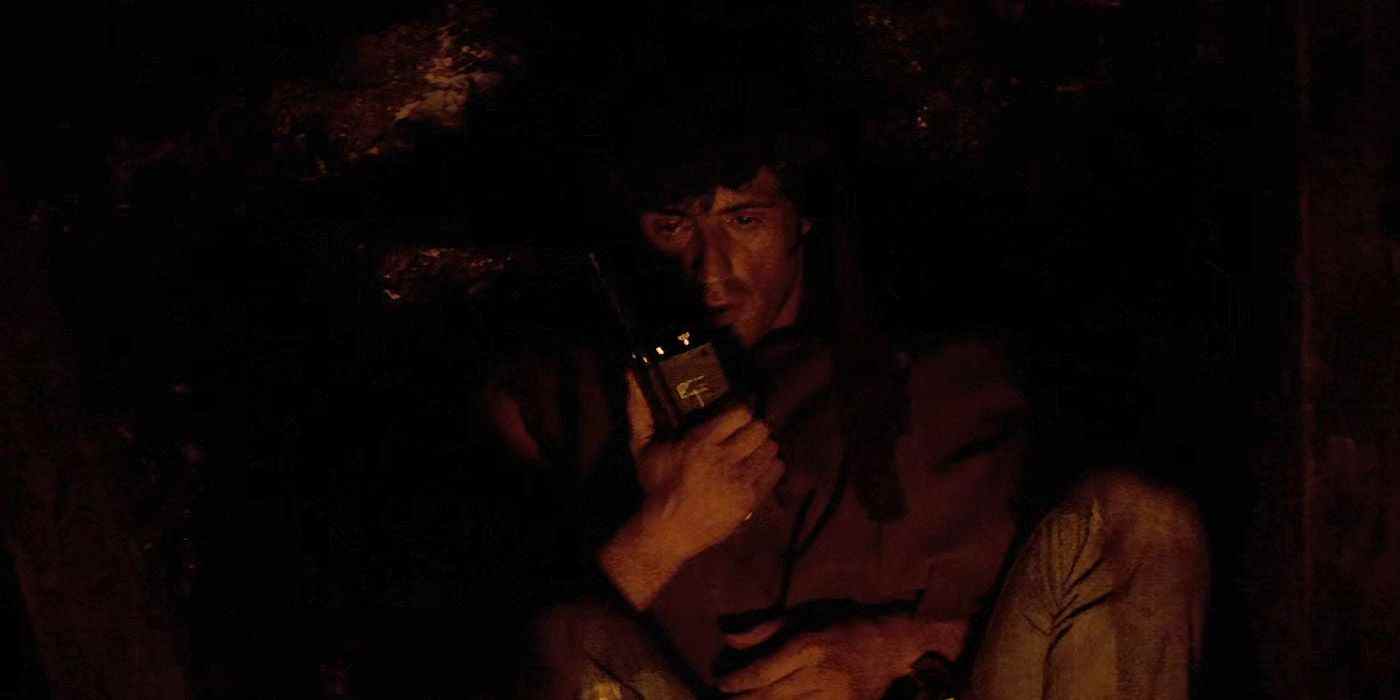
The beginning of First Blood showed Rambo tracking down his old Vietnam War buddy to catch up on old times, but he immediately got bad some bad news. That soldier had died of cancer after being exposed to the various chemicals used in the war, particularly Agent Orange.
This sent Rambo into a dark place, which was exacerbated by his abuse at the hands of the local police. He explained this to Trautman over the radio, which was an important plot device that helped establish the fragile mental state he was already in.
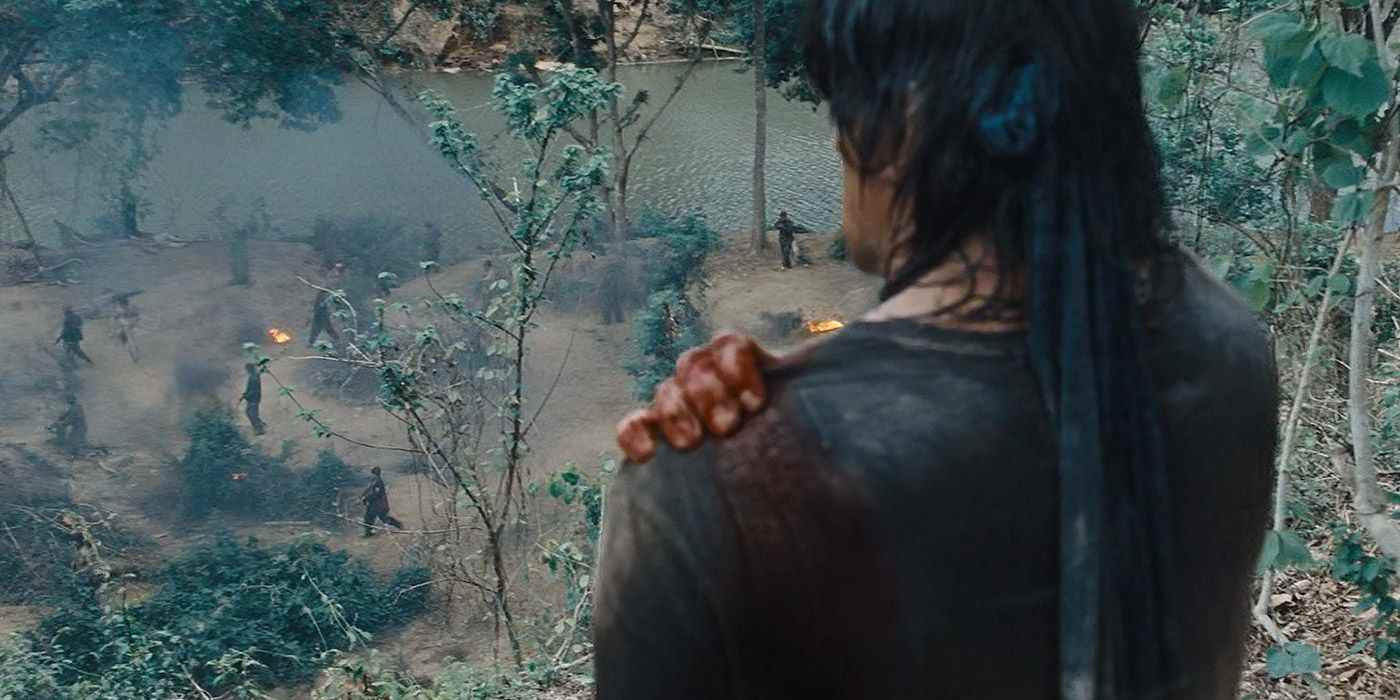
Rambo delivers this monologue to the freedom fighter Sarah in the fourth movie, beginning with “We’re like animals! It’s in the blood! It’s natural! Peace? That’s an accident! It’s what is! When you’re pushed, killing’s as easy as breathing. When the killing stops in one place, it starts in another, but that’s okay, ‘cause you’re killing for your country. But it ain’t your country who asks you; it’s a few men up top who want it.”
While this isn’t always the case, it does illustrate how regional conflicts tend to spill out of control due to various interests on both sides. Rambo made the point that incessant fighting never really solves anything. Rather, it simply leads to long-term multi-generational misery for those who aren’t perched at the top.
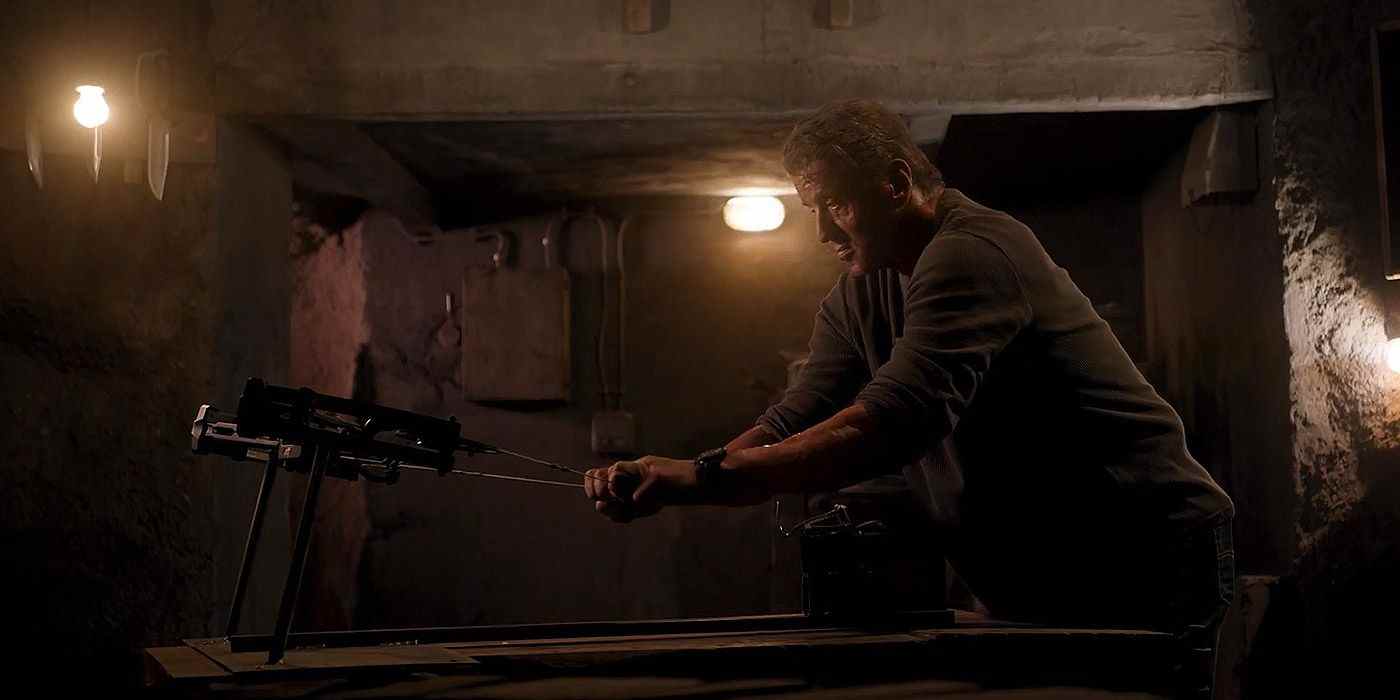
Revenge has been a common theme throughout the Rambo franchise, whether he was liberating P.O.W.s, or rescuing Col. Trautman. His desire for vengeance against the bad guys stemmed from a wellspring of violence and hatred that could activate at any moment, if the mixture was right.
In Last Blood, Rambo swore revenge against the villains in the most articulate way possible. His jaded nihilism hadn’t abated, no matter how his life circumstances had changed, and revenge had become a philosophy, rather than an instinctual reaction. It usually ended with some of the most brutal kills in the Rambo film franchise.
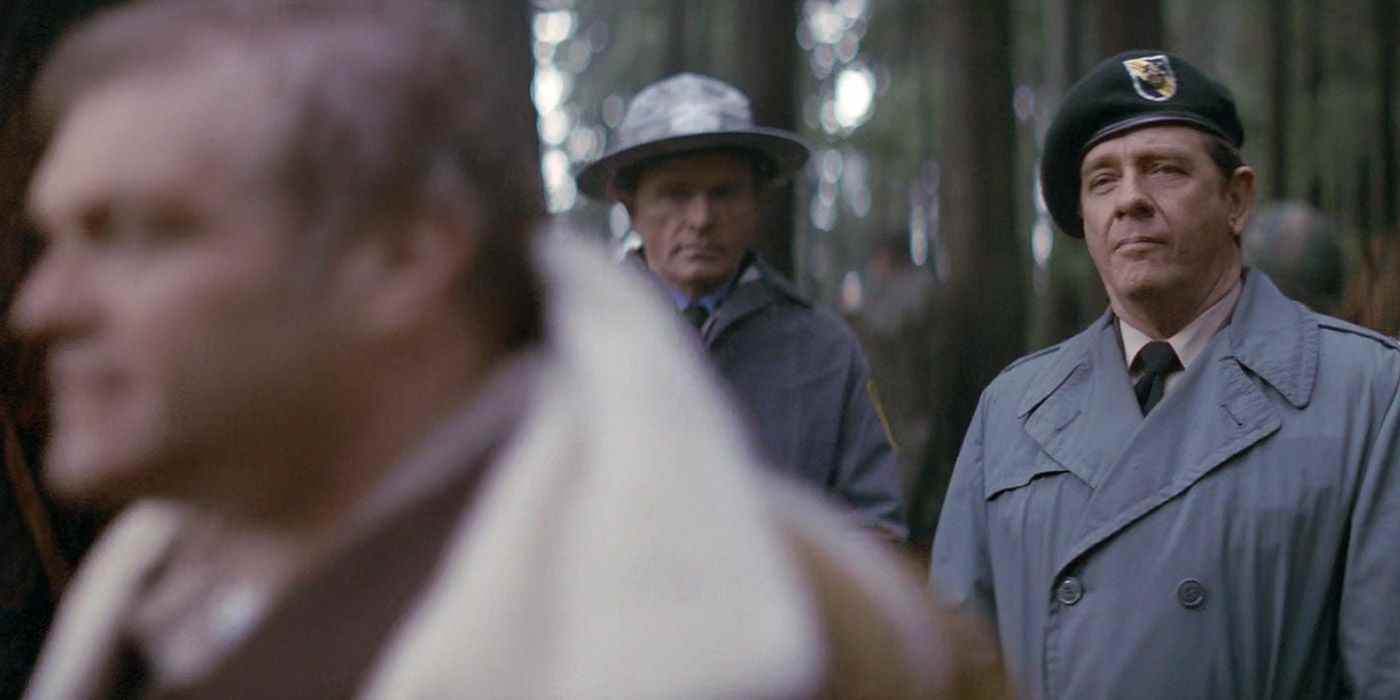
The cops who desperately chase Rambo through the woods after he escaped their grasp in First Blood bring in Colonel Trautman as their negotiator. Since he was Rambo’s commanding officer in Vietnam, he’s the only guy he’ll listen to – and the only guy he trusts.
When Trautman is brought onto the scene and briefed on the situation, he assures the cops that they’re not the ones hunting Rambo, but rather, the reverse. The quote was used as a building block to show the audience just who Rambo was, and what the local law enforcement was in for.
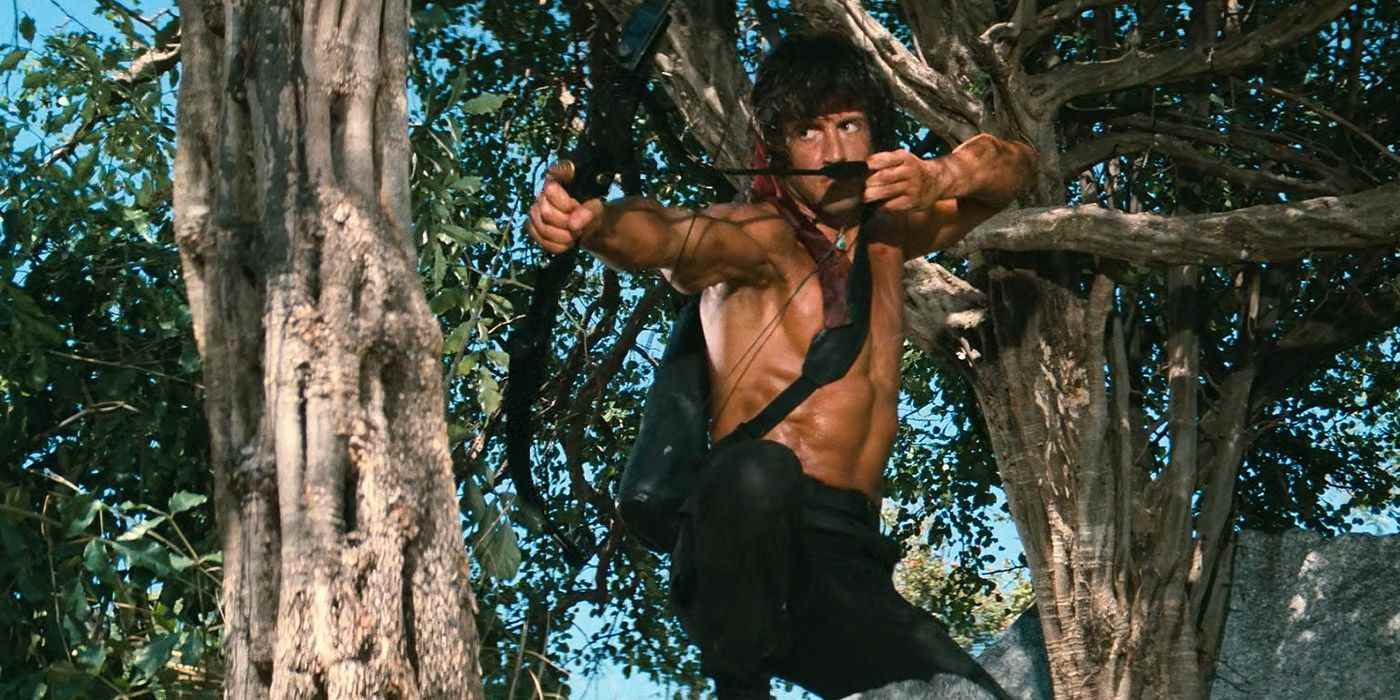
First and foremost, John Rambo is a soldier. His adult life began when he was drafted to fight in Vietnam, and he returned with PTSD and the ability to do just one thing – kill. He didn’t like that fact, and he had a hard time accepting it, but in the end, he must have known it to be true.
Whenever he’s called into action, Rambo activates his training in order to survive, and accomplish his mission. It isn’t just about following orders or accomplishing objectives. Rambo needed to “become war” in order to survive one, and that meant unleashing a one-man army on his foes.
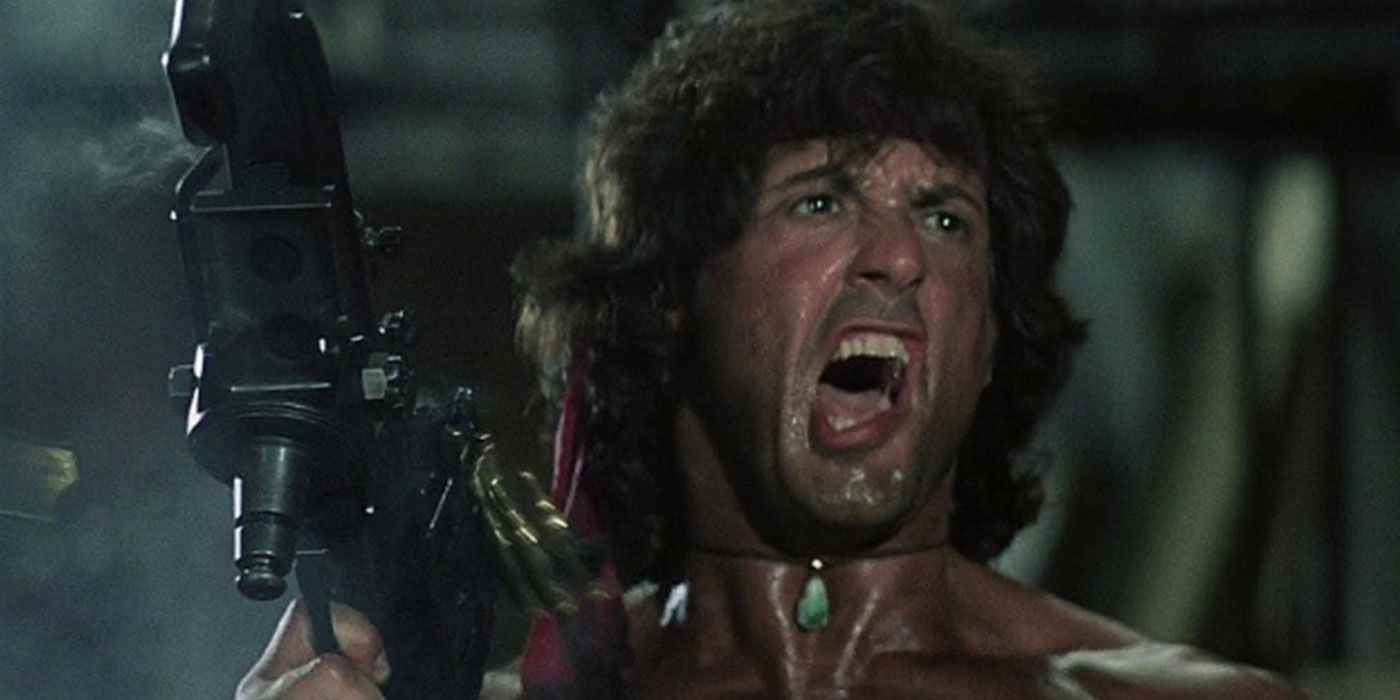
At the end of Rambo: First Blood Part II, Trautman thinks that after everything he’s been through at the hands of the U.S. government, Rambo hates his country. However, Rambo assures him that it’s the opposite, prompting a confused Trautman to ask him what he wants.
He then delivers this impassioned speech about how he, and all the other veterans of the Vietnam War just want to be appreciated by their country for doing what they believed was right.
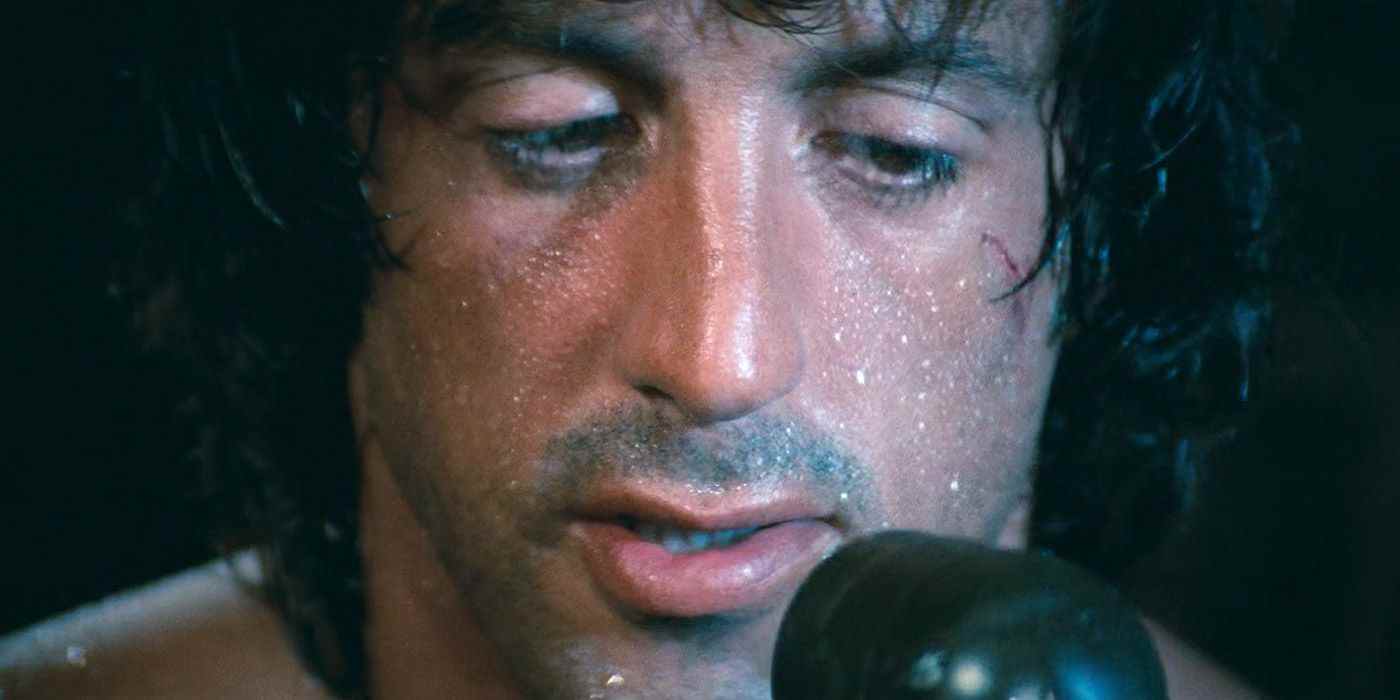
Soviet Colonel Zaysen is the primary villain of the third Rambo film, which took place during the height of the Soviet Union’s war with Afghanistan. Rambo’s intervention in the conflict causes the two to butt heads, and it quickly becomes personal.
When Zaysen asked Rambo who he was, the titular hero responded with this iconic franchise quote. He would live up to it in the end, showing how yet another one of his enemies had no idea who they were dealing with.
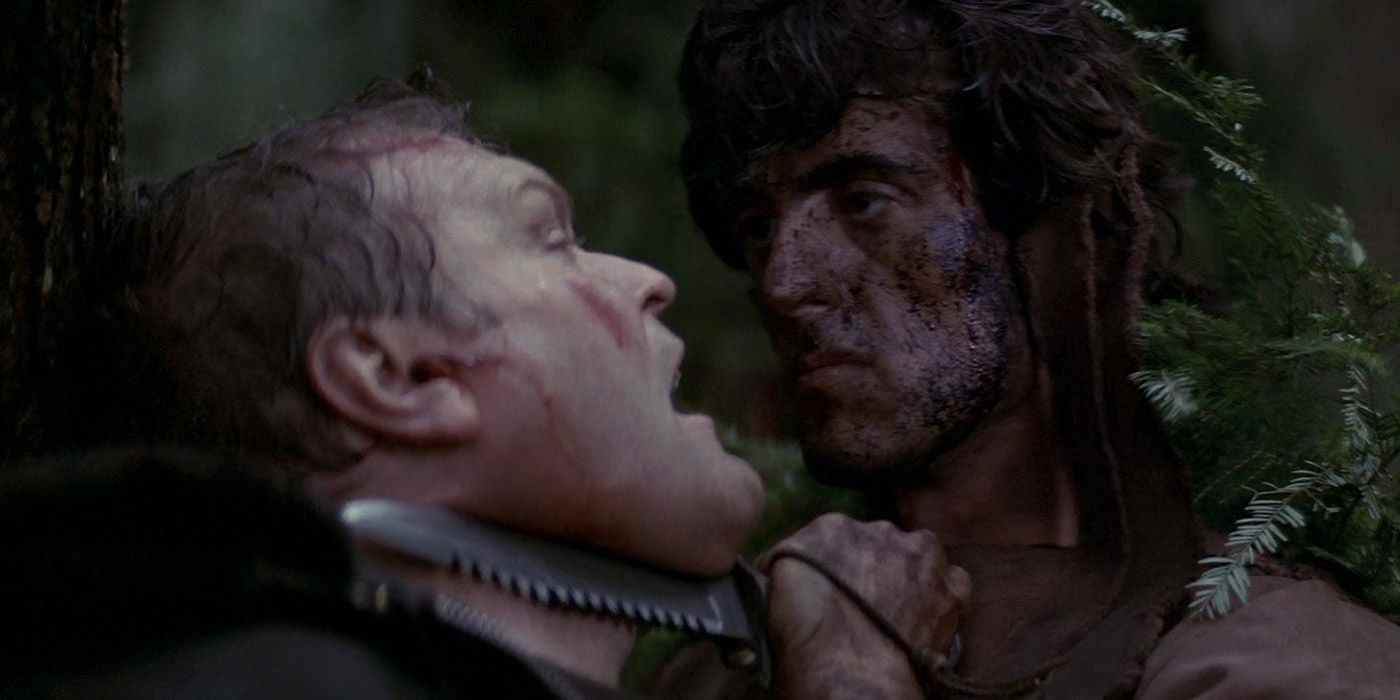
While John Rambo had one movie to go before establishing himself as a physics-defying 1980s action hero, his introduction in First Blood was far more passive. Only when the local police began harassing him did Rambo’s PTSD get triggered, and he flew off the handle in a panic.
Soon, a manhunt ensued where the local police found themselves completely out of their league. While tracking him through the forest in one of the Rambo franchise’s best action scenes, John managed to severely injure them all, before catching Sherriff Teasle off guard and holding a bowie knife to his throat, uttering this warning.
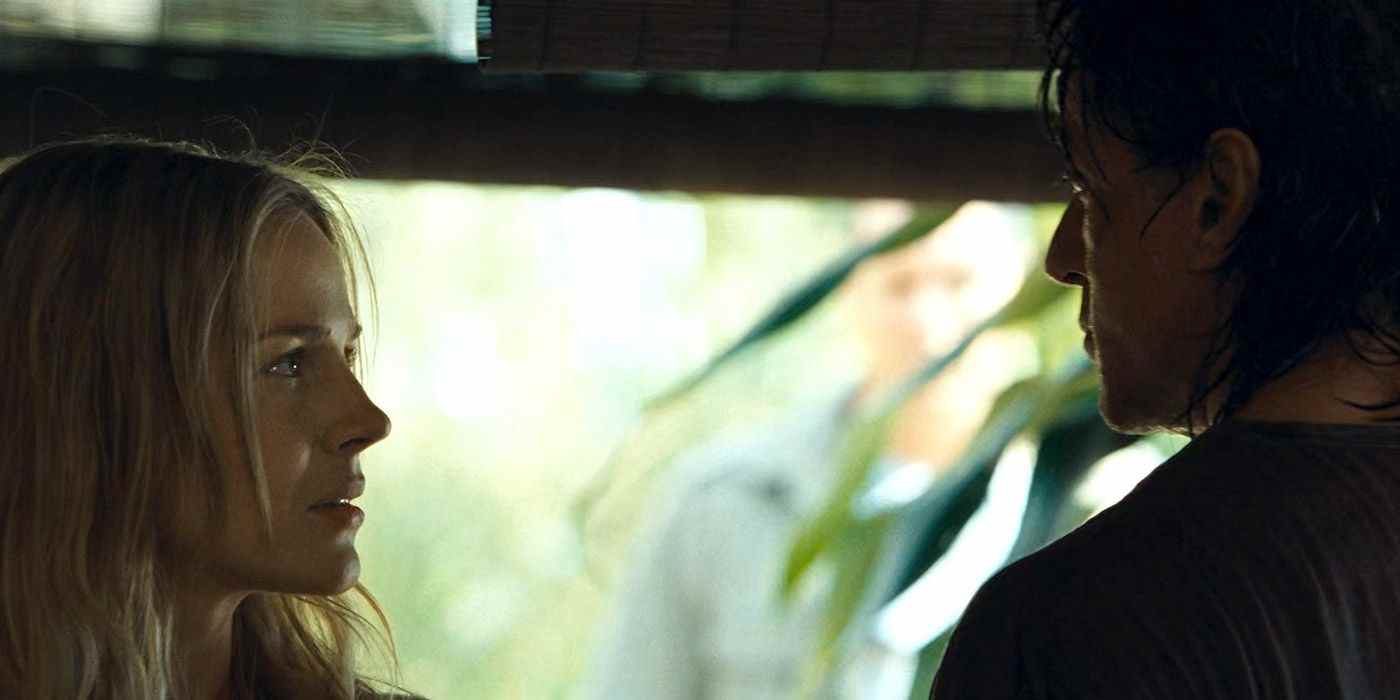
David Morrell, the author who created John Rambo with his novel First Blood, has said that he was pleased with the fourth movie because it portrayed the character exactly as he created him – a gruff cynic who ultimately does what he does best, despite hating himself for it. Despite this, the sequels could never top First Blood in terms of sheer impact.
When the freedom fighters first ask Rambo for the use of his boat so that they can implement some change for the oppressed people of Burma, he asks if they’re bringing any weapons. They say they’re not, and he boldly tells them that they won’t be changing anything unless they’re armed.

Rambo was captured during the events of First Blood, Part II by Soviet troops allied with the Vietnamese army, and he’s forced to read a list of comments that will essentially hogtie the U.S. from pursuing P.O.W. rescue operations in the region.
However, when he learns that commanding bureaucrat Marshall Murdock never had any intention of rescuing soldiers in the first place, Rambo flies into a rage. He delivers this blood-curdling threat before making his escape, with vengeance on his mind.
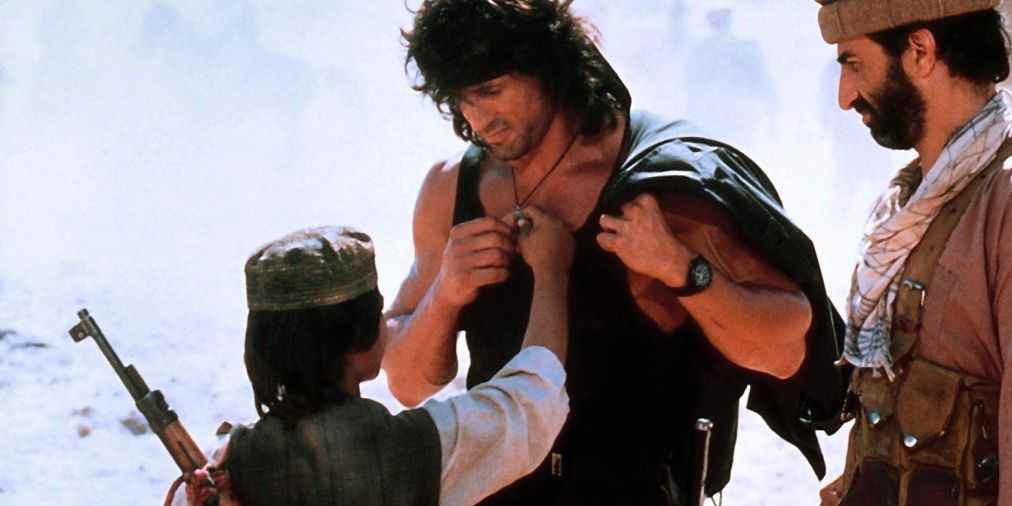
Rambo clearly knew how good a soldier he was, but he took absolutely no pride in it. Even when he inserted himself into the Afghanistan war zone in Rambo III, he was remarkably humble about his battle prowess and experience.
When asked about it, Rambo responded with this quip, which was a wink to the audience. However, it fit the character perfectly, showcasing Rambo as a man who never wanted to become the killer he turned out to be, and would never think of going around bragging about it.
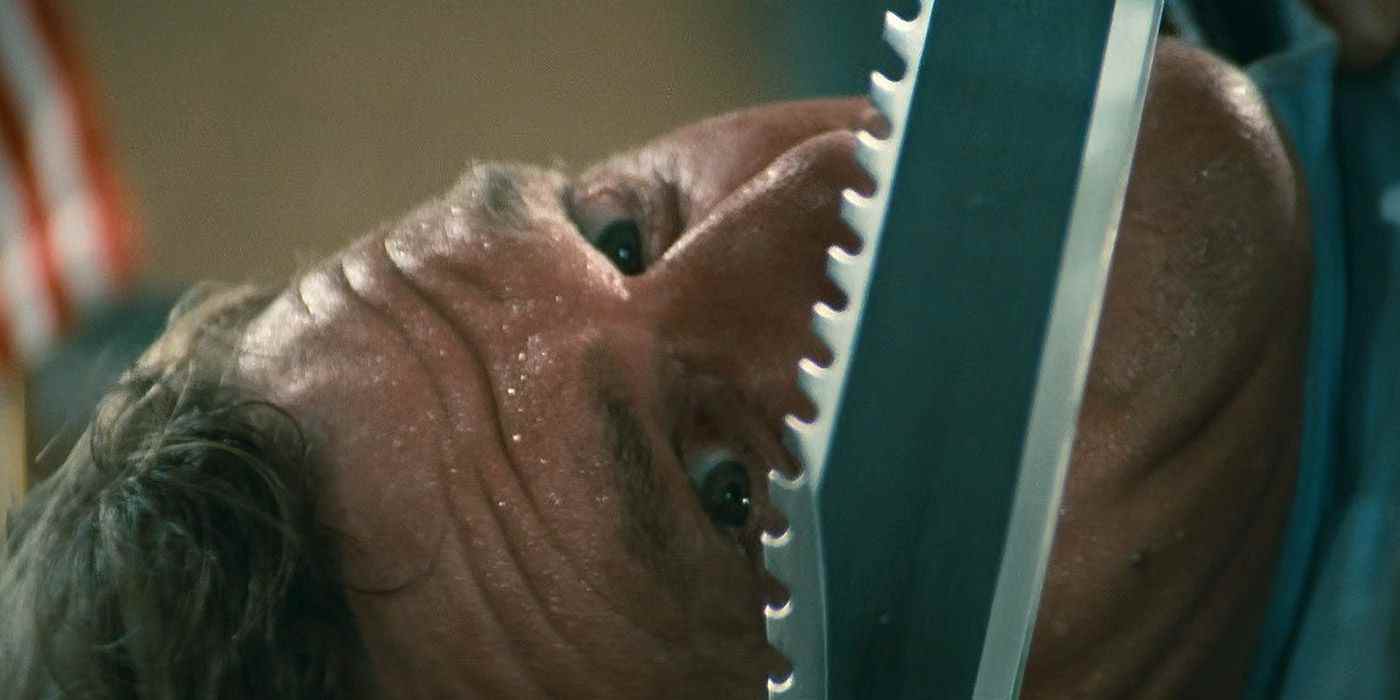
In Rambo: First Blood Part II, Murdock is the stock character who represents the military leaders who see wars in numbers and figures, without thinking about the actual people who are on the battleground fighting it for them. This was a common theme in action-oriented war movies of the 1980s.
When Rambo realizes there are a ton of American P.O.W.s around Vietnam that the U.S. military is doing nothing about, he pins Murdock to his own desk and slams his knife down next to him, telling him that if he doesn’t get out there and rescue those men, he’ll be coming for him.
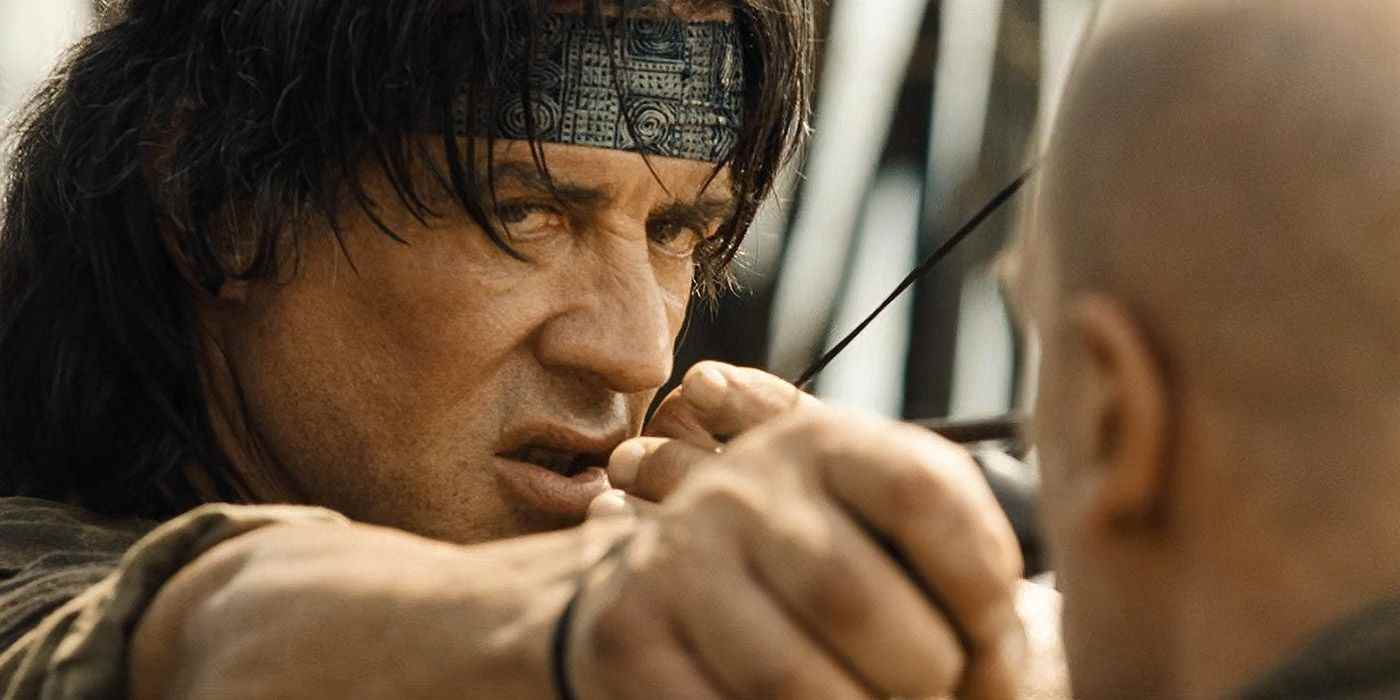
This quote represents Rambo’s mantra from the fourth movie, where he joins a pack of mercenaries sent in to rescue Christian missionaries captured by brutal Burmese soldiers. When things get too hot, they threaten to pull out, but Rambo holds his ground and delivers this line, in an effort to get them to commit to their mission.
The Karen National Liberation Army reportedly loved the movie for its vivid portrayal of the military oppression in Karen, and it encouraged them to continue their fight. They’ve even adopted this line as a battle cry. In response, Sylvester Stallone said, “That, to me, is one of the proudest moments I’ve ever had in film.”
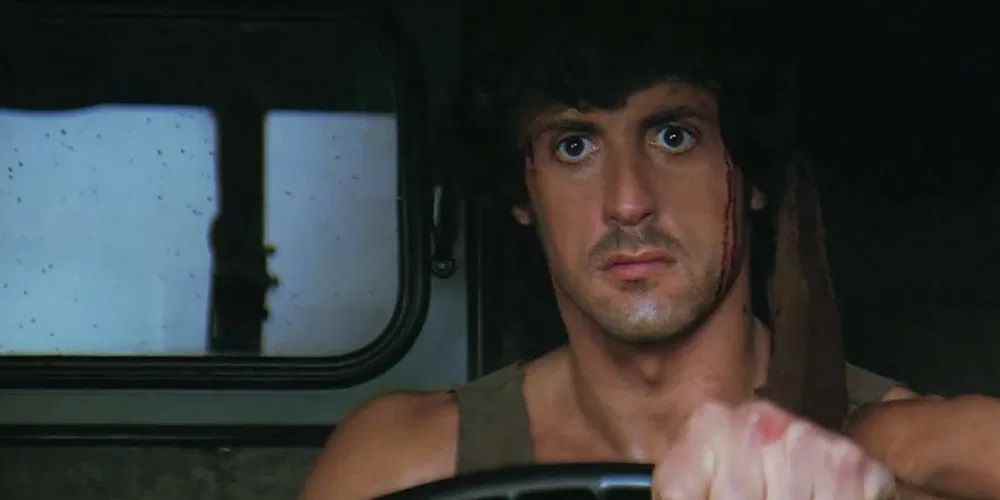
John Rambo utters the title of his first franchise film as he’s speaking over the radio to his old commanding officer, Trautman, who has been tasked with talking Rambo down. From the very beginning, Trautman suspected that there was more to the story than what the local police were feeding him.
This was essentially confirmed when Rambo said over the radio that he just wanted to get something to eat and be on his way. Instead, the local police hassled him, which is one of the things about First Blood that makes no real sense, pushed him to the breaking point, and started a conflict they were incapable of winning.
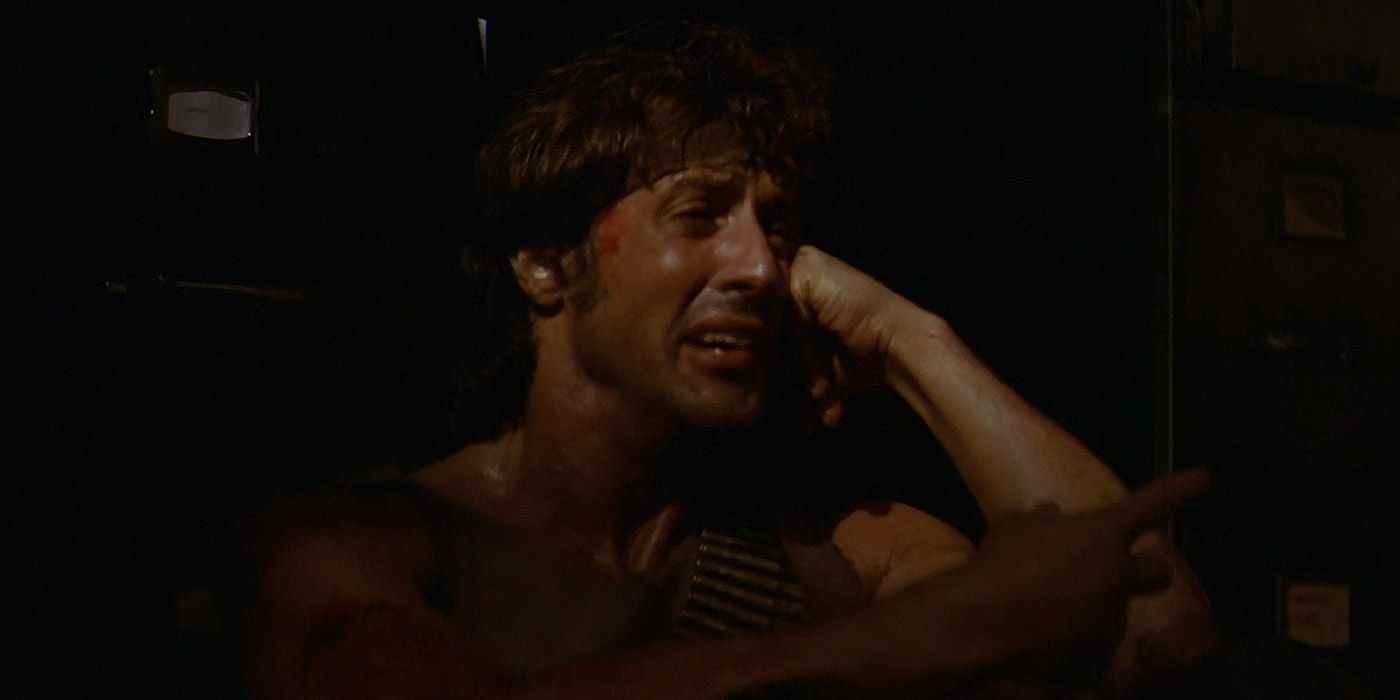
Colonel Trautman showed up in the final act of First Blood to dissuade Rambo from killing Colonel Trautman, who he now viewed as an enemy combatant. It was enough to get him to lower his guard for a moment and talk about his feelings, which up to that point had been suppressed.
This line shocked the audience and paved the way for one of Sylvester Stallone’s most riveting and emotional performances. There, Rambo broke down in tears over the horrors he’d witnessed, and how they prevented him from living a normal and happy life. It was the best kind of ending to a traditional action film.
